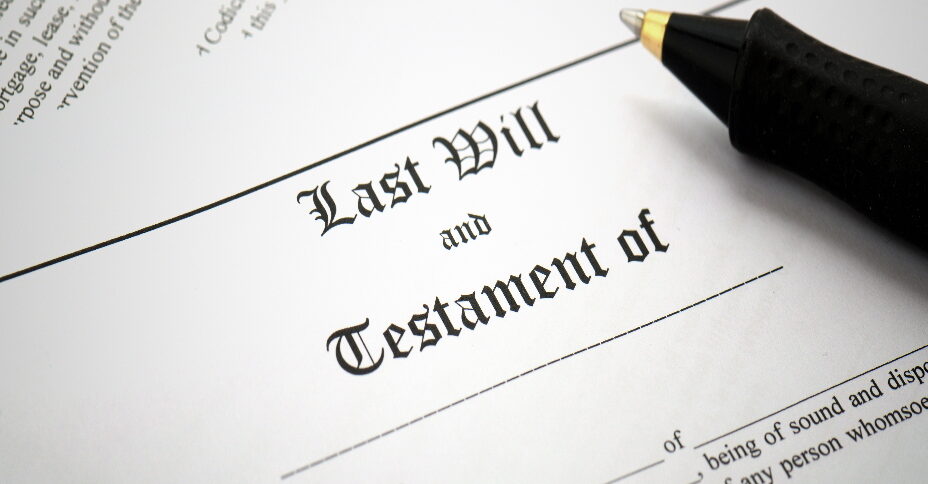Writing your will is one of the most important financial steps you will take during your life. But how many of us actually understand the process of how to write a will?
Ensuring that your assets are distributed according to your wishes is a critical aspect of responsible financial planning, and drawing up a will is a powerful way to take control of what happens to your estate after you’re gone. If you want to take the first steps towards writing your will, this guide breaks down the process and explores when seeking legal advice is necessary and how it can provide additional assurance.
The importance of writing a will
Writing a will is a pivotal step in securing your legacy and ensuring your wishes are honoured after you’re gone. By providing absolute clarity on the distribution of your assets and guardianship of any dependents, your will can help to minimise family conflicts and stressful bureaucratic complications for your loved ones, leaving them to grieve peacefully.
However, despite the importance of drawing up a will, a 2023 report from The National Will Register unveiled that a shocking 42% of adults in the UK have not spoken to anyone about what should happen to their estate upon their passing.

1. Itemise your assets
First things first, you will need to compile a comprehensive list of your assets, including property, bank accounts, savings, investments, insurance policies, and personal belongings. This inventory will serve as the foundation for deciding how you want your estate to be distributed.
2. Value your estate
When you are compiling your assets, make sure to include their worth.
You must also take into account any outstanding balance on your mortgage, credit card debt, loans, overdrafts and equity release schemes.
3. Choose your beneficiaries
The next step is to identify the individuals or organisations you wish to inherit your assets. This could include:
- your spouse or partner (bear in mind that a will is particularly important if you and your partner aren’t married, as your partner won’t possess the right to inherit your estate without a will)
- other family members, including children and grandchildren
- friends
- charities
Clearly outline who gets what. It’s important to be specific here to avoid ambiguity and potential conflicts after your passing.
Additionally, if you’re leaving assets or money to minors or people with disabilities or mental health conditions, you may want to write these bequests into trust, meaning that the assets you leave to these beneficiaries will be managed by specially appointed people.
4. Appoint an executor
Once you have evaluated your assets and estate, and chosen your beneficiaries, you must now select a trustworthy individual to act as the executor of your will.
This person will be responsible for carrying out your wishes and managing the distribution of your estate. Being an executor involves a great deal of responsibility and paperwork so think carefully about who you appoint, and remember to discuss this choice with the executor and receive their consent before finalising your will.
5. Detail any funeral wishes
While not legally binding, including your funeral preferences in your will can provide clarity and guidance to your loved ones during what will inevitably be a challenging and emotional time. Your will is an opportunity to specify details, such as whether you prefer burial or cremation, and any other requests you may have.
6. Write your will
Once you’ve made the decisions outlined above, you need to codify them by writing everything down in your official will document.
You can have your will drawn up a number of ways:
- with the help of a solicitor or chartered legal executive
- through a professional will writing service
- through a bank
- with assistance from a charity
- do it yourself
7. Sign and date your will
Once you have drafted your will, sign it in the presence of two witnesses. These witnesses must also sign your will to validate its legality, and it’s essential that they are not beneficiaries or spouses of beneficiaries to maintain impartiality.

How a lawyer can help
While it is possible to create a will without legal assistance, consulting with a professional can offer valuable expertise and peace of mind.
Most importantly, a lawyer will guarantee your will is legally watertight.
What’s more, a chartered legal executive can assist you with complex and important issues, such as navigating Inheritance Tax, managing complicated family situations (e.g. former spouses and estranged children), or ensuring the interests of a minor child or a disabled family member are protected after your death.
Here at Peter Ross, our experienced Wills and Probate specialists can provide expert legal advice on every aspect of the will writing process, offering clarity, insight and attention to detail in what can be an otherwise overwhelming process. After a free consultation, we can discuss your situation in depth and advise accordingly, ensuring that your will and other important documents are stored safely and securely.
To begin the process of writing your will, get in touch with our team today.


